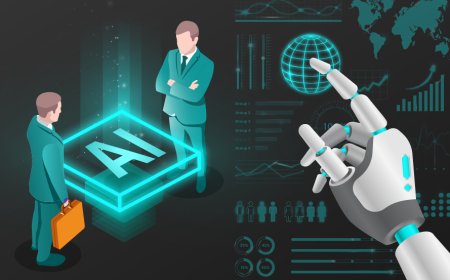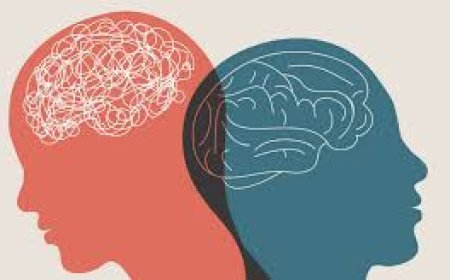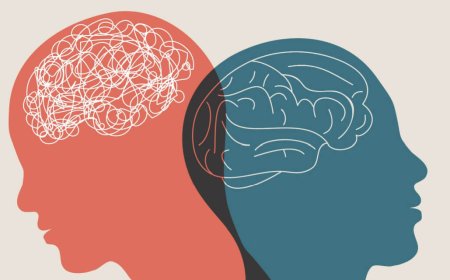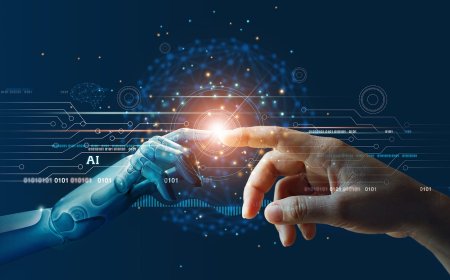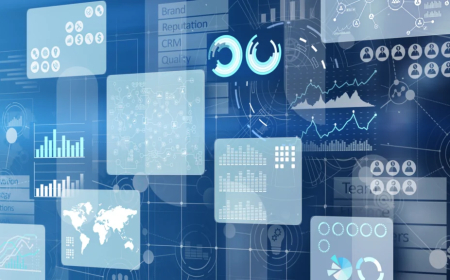Artificial Intelligence and Machine Learning: Transforming the Future of Technology
Explore how Artificial Intelligence and Machine Learning are transforming the future of technology, driving innovation, and reshaping industries worldwide. Discover trends, applications, and the potential impact on the workforce.
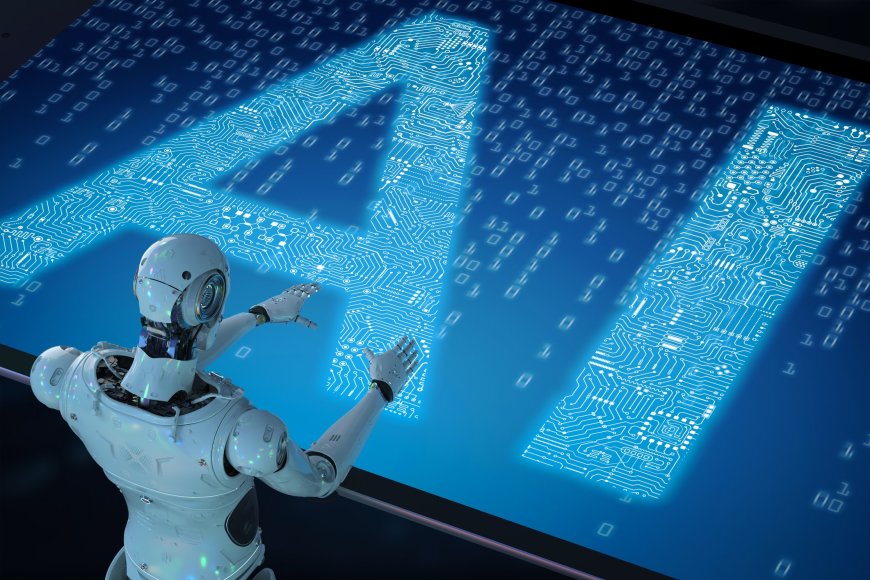
Introduction
In recent years, the fields of Artificial Intelligence (AI) and Machine Learning (ML) have captured the imagination of researchers, businesses, and the public alike. These revolutionary technologies promise to transform various aspects of society, from healthcare to finance and beyond. By enabling machines to perform tasks that traditionally required human intelligence, AI and ML are not merely augmenting existing workflows but are fundamentally reshaping the way we interact with technology and each other. This essay delves into the principles of AI and ML, their applications, implications for the future, challenges, and the ethical considerations surrounding their use.
At the core of AI and ML lies the ability to analyze vast amounts of data, recognize patterns, and make predictions. This capability has led to significant advancements in diverse sectors. In healthcare, for instance, AI algorithms are being employed to diagnose diseases with remarkable accuracy, often surpassing human practitioners. The integration of AI in medical imaging and predictive analytics not only enhances patient outcomes but also streamlines administrative processes, thereby reducing costs and increasing efficiency.
In the financial sector, ML models are revolutionizing investment strategies and risk assessment. By processing real-time data, these systems can identify market trends and anomalies that human analysts might overlook. This has led to more informed decision-making, ultimately benefiting consumers and investors alike. Furthermore, AI-driven chatbots are transforming customer service, providing instant responses and personalized interactions that enhance user experience.
However, the rapid advancement of AI and ML brings forth significant challenges. One of the foremost concerns is the potential for job displacement as automation becomes increasingly prevalent. While these technologies can improve productivity, they may also render certain roles obsolete, necessitating a reevaluation of workforce skills and education.
Ethical considerations are equally paramount. The deployment of AI systems raises questions about privacy, accountability, and bias. For instance, biased algorithms can perpetuate existing inequalities, leading to unfair treatment in areas such as hiring or law enforcement. As such, it is crucial for stakeholders to establish robust frameworks that ensure transparency and fairness in AI applications.
AI and ML are poised to redefine our future, offering unparalleled opportunities while also posing significant challenges. As we navigate this complex landscape, a balanced approach that prioritizes ethical considerations and societal impact will be essential. By fostering collaboration among technologists, policymakers, and the public, we can harness the full potential of these transformative technologies while mitigating their risks.
Understanding Artificial Intelligence and Machine Learning
Artificial Intelligence (AI) refers to the simulation of human intelligence processes by machines, particularly computer systems. This encompasses a wide range of functions, including learning, reasoning, problem-solving, perception, and language understanding. AI can be classified into two main categories:
Narrow AI: This type of AI is designed to handle a specific task, such as speech recognition, facial recognition, or playing chess. Most AI applications in use today fall under this category. Narrow AI excels in its designated functions, often outperforming humans in speed and accuracy, yet it lacks the ability to generalize knowledge or transfer skills beyond its programmed capabilities.
General AI: In contrast, General AI refers to a theoretical form of AI that possesses the ability to understand, learn, and apply intelligence across a wide range of tasks, similar to a human. This level of AI has not yet been achieved, and its development poses significant technical and ethical challenges. The pursuit of General AI raises questions about consciousness, self-awareness, and the moral implications of creating machines that could potentially surpass human intelligence.
Machine Learning (ML), on the other hand, is a subset of AI focused on the development of algorithms that allow computers to learn from and make predictions or decisions based on data. ML can be further divided into three main types:
Supervised Learning: In this approach, the model is trained on labeled data (input-output pairs), allowing it to learn patterns and make predictions. Applications of supervised learning are widespread, including in fields such as finance for credit scoring and in healthcare for disease diagnosis.
Unsupervised Learning: This method involves training the model on unlabeled data, with the goal of identifying patterns or groupings within the data. Unsupervised learning is particularly valuable for exploratory data analysis, enabling businesses to uncover hidden trends and insights that can inform strategic decisions.
Reinforcement Learning: Here, the model learns through trial and error by interacting with an environment, receiving rewards or penalties based on its actions. This type of learning is instrumental in developing systems for autonomous vehicles, robotics, and game playing, where the ability to adapt to dynamic conditions is crucial.
As AI and ML continue to evolve, their integration into various industries promises to revolutionize how we approach complex problems, enhance operational efficiencies, and drive innovation. However, it is essential to navigate the ethical considerations and potential societal impacts of these technologies, ensuring that their development aligns with human values and benefits all of humanity.
Applications of AI and Machine Learning
AI and ML have permeated various sectors, driving innovations and improving efficiencies. Some key applications include:
Healthcare: AI and ML are transforming healthcare through predictive analytics, personalized medicine, and improved diagnostic accuracy. Machine learning algorithms can analyze medical images, identify patterns in patient data, and predict disease outbreaks or the likelihood of certain conditions, aiding healthcare providers in making informed decisions. Furthermore, AI-driven tools are enhancing drug discovery processes by simulating molecular interactions, thus expediting the development of new treatments.
Finance: In the financial sector, AI and ML are utilized for fraud detection, risk assessment, and algorithmic trading. Machine learning models can analyze transaction patterns and flag suspicious activities, while predictive analytics help investment firms make data-driven decisions. Additionally, robo-advisors powered by AI are democratizing wealth management, offering personalized investment strategies based on individual risk profiles and financial goals.
Transportation: Autonomous vehicles are perhaps one of the most publicized applications of AI and ML. By leveraging sophisticated sensors and algorithms, self-driving cars can navigate complex environments, improve road safety, and optimize traffic flow. Beyond personal vehicles, AI is also enhancing public transportation systems through smart routing and predictive maintenance, ensuring that services remain efficient and reliable.
Retail: Retailers utilize AI for inventory management, personalized marketing, and customer service. Recommendation engines powered by machine learning can analyze customer preferences and behaviors, offering tailored suggestions that enhance shopping experiences and drive sales. Additionally, AI-driven chatbots are revolutionizing customer service by providing instant support and resolving inquiries, thereby improving customer satisfaction and loyalty.
Natural Language Processing (NLP): AI technologies in NLP enable machines to understand, interpret, and respond to human language. Applications range from chatbots and virtual assistants to sentiment analysis tools that gauge public opinion on social media. This capability allows businesses to engage more effectively with their customers and adapt their strategies based on real-time feedback.
Manufacturing: Predictive maintenance powered by machine learning helps manufacturers minimize downtime by predicting equipment failures and optimizing maintenance schedules. AI-driven robotics have also enhanced automation on production lines, increasing efficiency and reducing costs. Furthermore, AI is being employed in quality control processes, where machine vision systems can detect defects with precision, ensuring that only the highest standards of products reach consumers.
The applications of AI and ML are vast and varied, reshaping industries and unlocking new possibilities. As these technologies continue to evolve, their impact will likely expand, driving further innovation and efficiency across sectors.
Implications for the Future
The continued advancement of AI and ML technologies will undoubtedly bring profound changes to our lives. Key implications include:
Job Transformation: As AI and ML automate routine tasks, the labor market will likely experience a shift in demand for specific skills. While some jobs may become obsolete, new opportunities in AI development, data analysis, and other tech-driven roles will emerge. This transformation will necessitate a robust commitment to reskilling and upskilling the workforce, ensuring that employees can adapt to the evolving landscape. Educational institutions and corporate training programs will play a crucial role in equipping individuals with the competencies required for future roles, fostering a culture of lifelong learning.
Enhanced Decision-Making: Organizations will increasingly rely on AI-driven insights to make strategic decisions. The ability to analyze vast amounts of data quickly and accurately will lead to more informed business choices and improved operational efficiency. As AI systems become more sophisticated, they will not only identify trends but also predict future outcomes, allowing businesses to navigate uncertainties with greater confidence. This predictive capability will be instrumental in sectors such as finance, supply chain management, and even public policy, where timely and data-driven decisions can significantly impact outcomes.
Personalization: From marketing to healthcare, AI and ML will enable hyper-personalized experiences for consumers. Personalized recommendations and tailored solutions will foster stronger connections between businesses and their customers. In healthcare, for instance, AI can analyze patient data to offer customized treatment plans, improving patient outcomes and satisfaction. This level of personalization will redefine customer engagement, as consumers will increasingly expect services and products that cater specifically to their preferences and needs.
Accessibility: AI technologies can enhance accessibility for individuals with disabilities, providing assistive tools that empower greater independence and participation in society. For instance, voice recognition systems can help visually impaired individuals navigate their environments more easily. Moreover, AI-driven applications can facilitate communication for those with speech impairments, creating opportunities for social interaction and professional engagement. As these technologies evolve, they will contribute to a more inclusive society, where barriers are diminished, and everyone can participate fully.
Ethical Considerations: As we embrace these advancements, it is imperative to address ethical considerations surrounding AI and ML. Issues such as data privacy, algorithmic bias, and the implications of automation on employment must be carefully navigated. Establishing ethical guidelines and frameworks will be essential to ensure that technology serves humanity positively and equitably, fostering trust and accountability in AI systems.
The future shaped by AI and ML holds immense potential for transformation across various sectors, but it will require thoughtful engagement with the challenges and opportunities that arise.
Challenges and Ethical Considerations
Despite the promise of AI and ML, several challenges and ethical considerations must be addressed to ensure their responsible deployment and integration into society.
Bias and Fairness: Machine learning algorithms can inadvertently perpetuate biases present in the training data, leading to unfair or discriminatory outcomes. For instance, biased training datasets may result in AI systems that favor certain demographics over others, exacerbating existing inequalities. Ensuring fairness and transparency in AI systems is critical to prevent harm to marginalized groups. Organizations must implement rigorous auditing processes and diverse data sourcing strategies to mitigate bias and promote equitable outcomes.
Privacy Concerns: The collection and use of vast amounts of personal data raise significant privacy issues. With the increasing reliance on data-driven insights, individuals' privacy rights can be compromised. Striking a balance between harnessing data for innovation and respecting individual privacy is essential for fostering trust in AI technologies. Implementing robust data anonymization techniques and adhering to stringent data protection regulations can help safeguard user privacy while still allowing for meaningful analysis.
Accountability: Determining accountability for AI-driven decisions can be complex. As AI systems become more autonomous, questions arise regarding liability for errors or unintended consequences. Establishing clear frameworks for accountability is vital, ensuring that stakeholders understand their responsibilities in the deployment and oversight of AI technologies. This may involve creating regulatory bodies tasked with monitoring AI applications and setting standards for ethical AI practices.
Security Risks: The integration of AI and ML into critical sectors poses security risks, as malicious actors may exploit vulnerabilities in these technologies. Cybersecurity challenges can arise, including data breaches and the manipulation of AI algorithms. Ensuring robust security measures is paramount to safeguard against cyber threats. Organizations must invest in advanced security protocols, regular system audits, and employee training to create a culture of security awareness.
Job Displacement: While AI can create new opportunities, it also poses the risk of job displacement for certain roles. The automation of routine tasks may lead to significant shifts in the workforce landscape. Policymakers and organizations must prepare for this shift by promoting reskilling and upskilling initiatives. By investing in workforce development programs, we can equip individuals with the skills necessary to thrive in an AI-enhanced economy, ultimately fostering a more adaptable and resilient labor market.
Addressing these challenges and ethical considerations is essential for harnessing the full potential of AI and ML while promoting a fair, secure, and inclusive future.
Conclusion
Artificial Intelligence and Machine Learning are undoubtedly transforming the future of technology, reshaping industries, and altering the way we interact with the world. From improving healthcare outcomes to optimizing business operations and enhancing consumer experiences, the potential applications of these technologies are vast and varied. However, as society embraces the benefits of AI and ML, it is imperative to address the challenges and ethical considerations that arise. By fostering a responsible and inclusive approach to AI development, we can harness the full potential of these transformative technologies, paving the way for a future that is not only innovative but also equitable and just.
References
-
IBM. (2021). What is Artificial Intelligence (AI)? Retrieved from IBM AI
-
Michie, S., & Johnson, S. (2004). What is Machine Learning? Retrieved from Institute for Artificial Intelligence
-
Chui, M., Manyika, J., & M. (2018). Where machines could replace humans—and where they can't (yet). McKinsey Quarterly. Retrieved from McKinsey
-
LeCun, Y., Bengio, Y., & Haffner, P. (2015). Gradient-Based Learning Applied to Document Recognition. Proceedings of the IEEE, 86(11), 2278-2324. doi:10.1109/5.726791
-
Dastin, J. (2018). Amazon scrapped a secret AI recruitment tool after finding it was biased against women. Reuters. Retrieved from Reuters
What's Your Reaction?
 Like
0
Like
0
 Dislike
0
Dislike
0
 Love
0
Love
0
 Funny
0
Funny
0
 Angry
0
Angry
0
 Sad
0
Sad
0
 Wow
0
Wow
0
